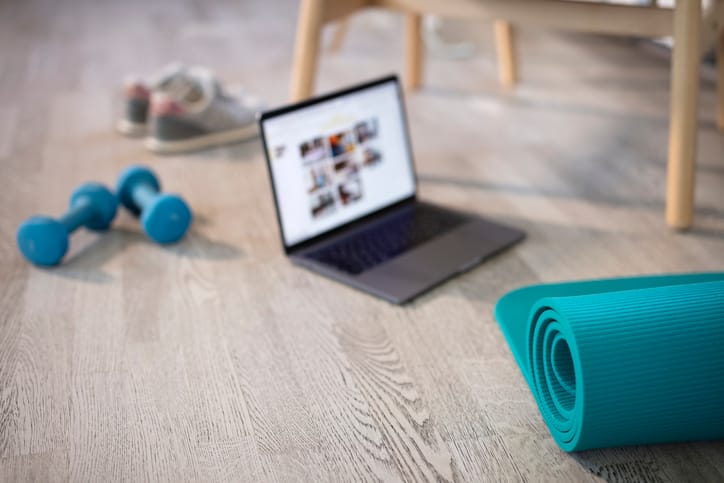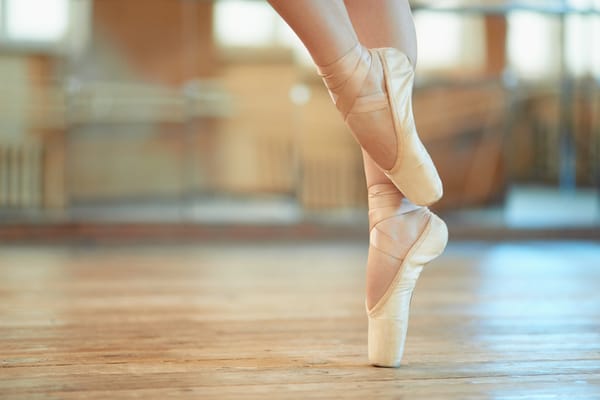Algorithmic Anxiety and Too Many Fitness Choices

Happy Friday! What's good?
"We are living in a golden age of fitness," Yasmin Tayag writes in The Atlantic. "With workouts to accommodate every skill level, interest, time commitment, and social capacity, it should be easier than ever for novices to find one and get started. But it’s not. Instead of finding a workout that suited me, choice overload left me even more inert, and less motivated, than I was when I started my search." There are too many ways to exercise, she argues.
Indeed, within a two block radius of my apartment, there are at least half a dozen gyms — a couple of CrossFit "boxes", a couple of gym chains, a couple of boutique studios. There's a rock-climbing gym. Two different pilates franchises. An F45 (which offers HIIT-style strength classes). And if you read Monday's essay, you know there's an Orange Theory Fitness gym in the neighborhood too. And sure, maybe it's a New York thing.

All over the US, the number of gyms is growing again, after a particularly rough patch during the pandemic. And then, of course, there are the hundreds and hundreds and hundreds and hundreds and hundreds of online offerings. There are — Tayag is right — a lot of options out there.
But choosing a "fitness regime" as she calls it, "isn’t just about moving your body. It could shape your future schedule, lifestyle, and even identity. To others, the way you exercise might say something about who you are, whether that’s a marathon maniac or a #PelotonMom. To the exercise newbie, this can make the stakes feel dauntingly high." This connection between fitness and identity is intertwined with technology — a performative fitness that she associates with a hashtag and with Peloton, but that one can see at play with numerous other social media platforms and gadgets (Strava, for example. Or, Garmin). Her concerns are less "how should I exercise?" — it's not "what do I like to do?" or "what makes me feel healthy?" — but "how will I be seen?" This feels very much like the "algorithmic anxiety" that Kyle Chayka writes about in his book Filterworld: How Algorithms Flattened Culture.
Might I suggest barbell training? (I am always going to suggest barbell training.) And might I suggest Julia Turshen's new essay "Built for This: The Quiet Strength of Powerlifting."
The goal of powerlifting is to perfect your form and increase the amount of weight you move in each life. I have kept doing it because I look forward to it. Powerlifting is repetitive and predictable, which frees my anxious mind from wondering what will happen when I show up to the gym. I know not only what I am going to do, but I also know I can do it. I pick up things and put them back where I found them."
Turshen argues that powerlifting runs counter to "diet culture." Does it subvert some of the culture of the algorithm too? Let me think on that a bit more…
Elsewhere in unruly bodies: The NYC Marathon has failed to pay Cal Calamia their prize money for winning the non-binary division of last year's race, due to some weird rule that they needed to have run 6 NYRR races to qualify — a rule that does not apply to the male or female winners. "Uncle Chen," age 52, was disqualified after completing the Xiamen Marathon in three hours and 33 minutes because he chain-smoked the whole way. The New Yorker profiles Tony Hawk, age 55. (Related, maybe: Zoe Williams writes about the weirdness of 50th birthday celebrations.)
The business of fitness: Netflix has struck a $500 million deal with WWE and will stream "Monday Night Raw" beginning in 2025. I think I said that I didn't anticipate any big hardware moves in 2024, but Wahoo has just unveiled a new $5000 treadmill — so either I'm wrong, or Wahoo is. GQ says that "rucking is the workout of 2024," and you can always tell when the guys are tuned in to the bioscience podcasts, can't you. Adidas and dating app Bumble are partnering to help people find "training partners." Riiight. Vox on "The complicated lives and deaths of TikTok’s illness influencers." And I don't even know where to start with Lumin Fitness, yet another new franchise — an "interactive AI-powered gamified boutique fitness studio concept" whose key selling point is its "low-labor model where fitness classes can profitably run all day."
Live by the algorithm, die by the algorithm.
Thanks for reading Second Breakfast. If you like my work and think we need more tech criticism and fewer tech influencers — "consideration, not consumption" as John Warner recently put it, please consider becoming a paid subscriber.





